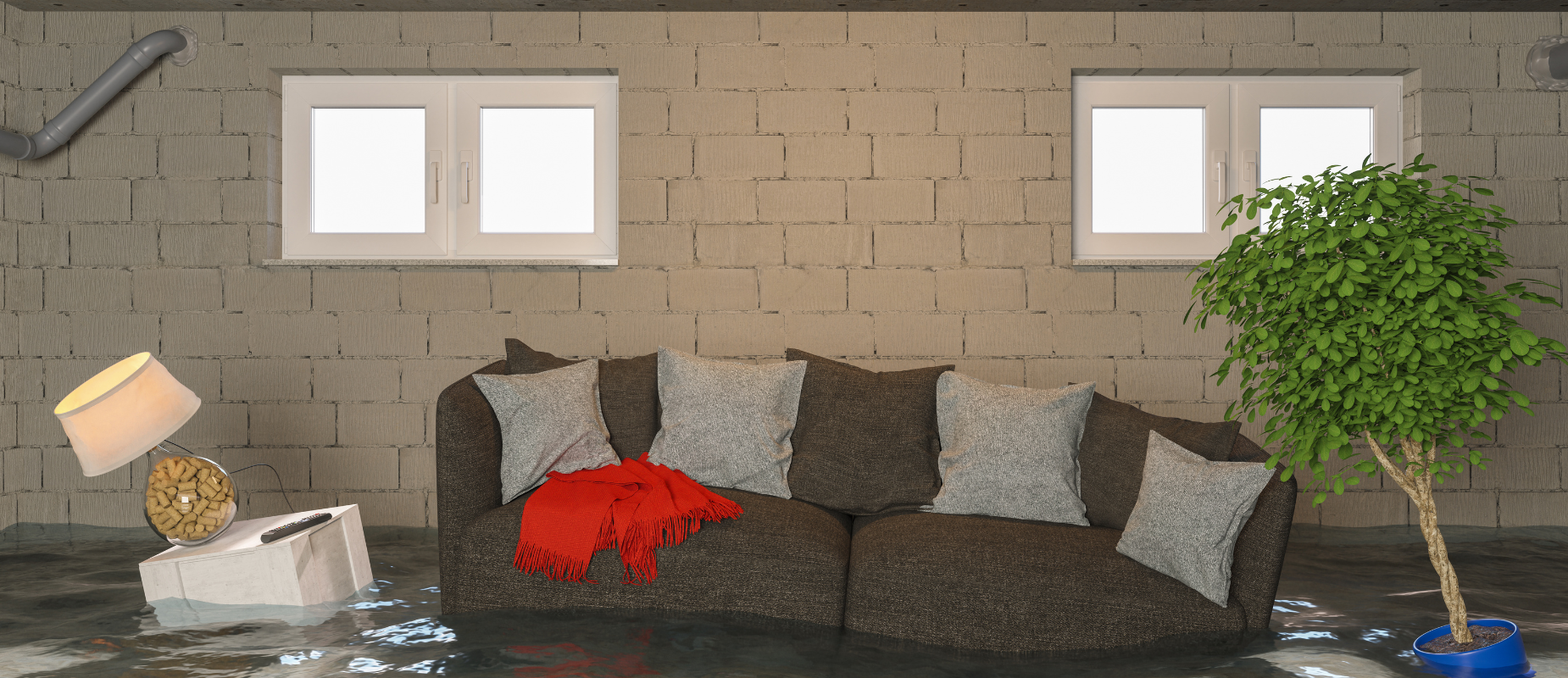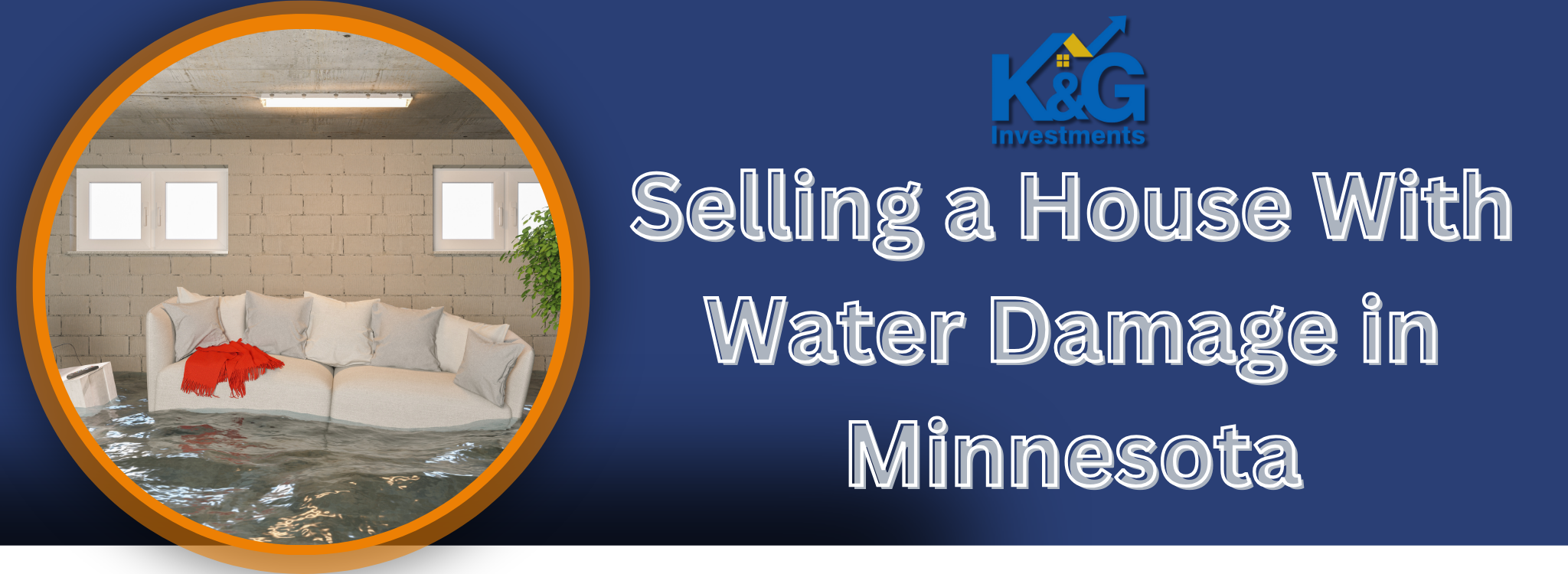
Selling a House With Water Damage in Minnesota: Essential Tips and Considerations
Selling a House With Water Damage in Minnesota can present challenges, but addressing buyer concerns, ensuring proper disclosure, and repairing key areas like the foundation and roof can help maintain the property’s value and expedite the selling process. K&G Investment provides expert guidance on Minnesota housing laws, home inspections, and potential repair costs to aid sellers.
How Does Water Damage Affect Property Value in Minnesota?

Is Water Damage a Deal Breaker?
Water damage is a big worry for anyone buying a house. If you’re selling a house with water damage, you must know how it can affect your sale. Buyers might be afraid of how bad the damage is and if it will cause more problems later. Water damage can make the house worth less. People might offer less money or decide not to buy it at all. Fixing water damage before selling can help ease these worries.
How Can Water Damage Impact a Home’s Valuation?
When a home has water damage, it can decrease its value during an appraisal. Water problems can hurt the foundation, which can be costly and hard to fix. The cost of water damage repair can vary, but fixing these problems is important if you plan to sell your home. Repairing water damage makes the house look better and strengthens it, possibly making it worth more. Proper repairs can help show buyers that the home is well-cared for.
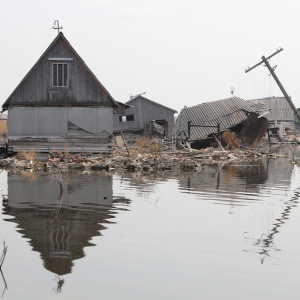
Are There Specific Minnesota Laws About Disclosing Water Damage?
Minnesota has rules about telling buyers if a house has water damage. Minnesota housing laws say sellers must share all important facts, like past or present water damage that could lower the property’s value or appeal. State disclosure requirements mean you must discuss such issues when talking to buyers. Being open and honest not only follows the law but also builds trust with potential buyers, which can help make a sale.
What Steps Should You Take Before Selling a House With Water Damage?
Selling a house with water damage can be tricky. But if you follow some key steps, you can make the process smoother. Here’s how you can prepare your home to sell.
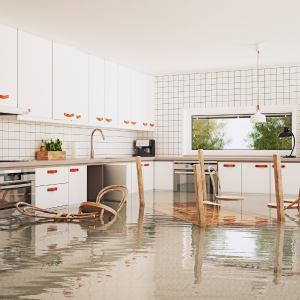
How to Stage Your Home to Minimize the Appearance of Damage?
Staging your home well can help hide water damage and draw in buyers. Here are some simple home staging ideas:
- Cosmetic Fixes: Make small repairs that quickly improve your home’s appearance. Cover water stains with waterproof paint and replace broken baseboards or ceiling tiles.
- Curb Appeal After Water Damage: Make the outside of your home look nice. Trim bushes, clean pathways, and add new plants to make a good impression.
These changes can help, especially in busy markets like Minnesota real estate. Buyers will notice your effort to keep the property looking good.
Should You Repair Water Damage Before Listing?
Deciding to fix water damage before selling involves a few things:
- Repairing Water Damage for Sale: Fix big issues like foundation problems or roof leaks. These can scare off buyers and lower your home’s price. Work on fixing things that affect your home’s safety.
- Cost of Water Damage Repair: Think about the cost of repairs compared to the money you might make back. Sometimes, repairing water damage can raise the selling price enough to make it worth it.
Consider these points to figure out the best plan for your home.
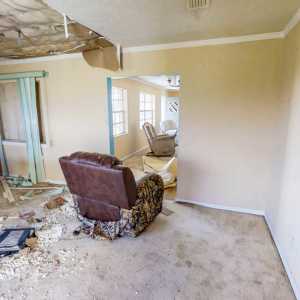
What Repairs Provide the Best Return on Investment?
Some repairs give you more money back when selling. Focus on these:
- Mold Remediation: Mold can worry buyers, so it’s important to clean it up professionally.
- Foundation Repair Companies: Hire experts to fix foundation issues. This reassures buyers about your home’s strength.
- Waterproofing a Basement: This can stop future water problems and makes your home appealing to careful buyers.
- Quick House Sale Strategies: Do fast fixes and small improvements to get offers without big renovations. This might include landscaping or painting inside.
Choosing the right repairs can help you get the most money back.
How to Document Water Damage for Potential Buyers?
Being open about water damage is important when selling. Good documentation can help ease buyer worries:
- Disclosing Water Damage to Buyers: Be honest about past water issues. Show detailed repair records, inspections, and insurance claims.
- Inspection and State Disclosure Requirements: Know your state’s rules about what you must tell buyers. In Minnesota, you must disclose known facts about your property, including water damage.
- Insurance Claims for Water Damage: Share any insurance claims you’ve made to show you’ve managed the water problem well.
You build trust with buyers and help them decide wisely by providing clear details.
Following these tips can help you sell a water-damaged property successfully.
What Are the Common Types of Water Damage in Minnesota Homes?
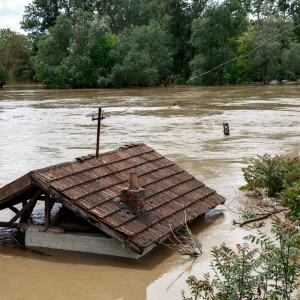
How Do Floods Specifically Impact Properties?
Floods can really mess up homes in Minnesota, especially in places that flood a lot. When a flood hits, water can rush into houses and cause lots of damage. This damage can ruin walls, floors, and furniture. In Minnesota, floods often happen because of heavy rains or melting snow. People living in these areas may need to fix storm damage and watch their home values change in the Minnesota real estate market. Good home insurance for water damage is important to help cover losses.
What Are the Signs of Hidden Water Damage?
Hidden water damage can be hard to spot, but catching it early is important. Look for sudden increases in your water bill, which might mean there’s a leak. Also, check for mold or wet spots on ceilings or walls. Mold inspection is very important in Minnesota homes because moisture can be a big problem. Regular inspections can find moisture damage quickly. Some home inspection tips include checking for peeling paint, musty smells, and warped surfaces. These can all show there are water problems you need to fix.
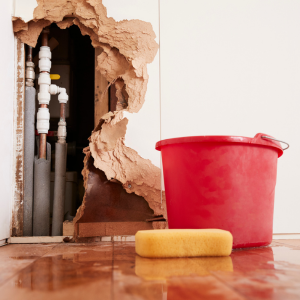
Which Areas of a House Are Most Vulnerable to Water Issues?
Some parts of a house get more water damage than others. Basements, being underground, often have these issues. To fix this, you can use wet basement solutions like waterproofing a basement and setting up good drainage systems. Roofs, especially flat ones, might leak during heavy rain or when snow piles up. It’s smart to keep roofs maintained to stop leaks in Minnesota. Plumbing problems can also cause water damage if frozen pipes burst. Knowing how to repair frozen pipes can help prevent this. Keeping gutters clean and working helps keep water away from the house. Egress windows with good drainage can also help protect basements from water coming in.
Who Needs to Be Involved in Selling a Water-Damaged House?
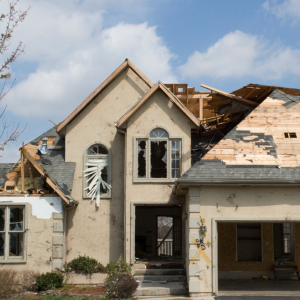
When Should You Contact a Real Estate Professional Specializing in Damaged Properties?
If you want to sell a water-damaged house, talk to a real estate professional who knows about selling damaged properties. These agents know the Minnesota real estate market well and can help with the special problems of selling such homes. Contact them as soon as you decide to sell. Local realtors with experience in damaged properties will help set the right price and find the best ways to market your home. They will guide you through each step so that you won’t make mistakes.
Do You Need a Lawyer to Navigate Disclosure Laws?
You need a lawyer to help with disclosure laws when selling a water-damaged house. In Minnesota, you must inform buyers about big problems, like water damage. A lawyer familiar with Minnesota’s real estate law will ensure you follow all the state’s rules. This is important to avoid any legal trouble after the sale. Your lawyer can also help write or review papers to ensure everything is correct.
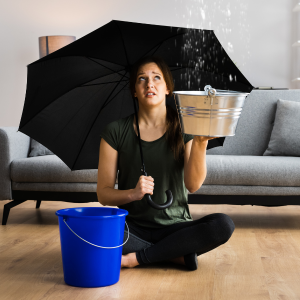
How Important Is an Inspection in This Scenario?
A home inspection is very important for selling a house with water damage. Hiring a trustworthy inspector will give you a clear picture of your home’s condition. The inspection will show any hidden problems and how bad the damage is. Here are some inspection tips:
- Pick an inspector who knows how to check water-damaged homes.
- Fix small things before the inspection to get ready.
- Use the report to set a fair price for your house.
A good home appraisal considering water damage helps set the right price for buyers, making the sale go more smoothly.
What Are Effective Strategies for Marketing a Water-Damaged House?
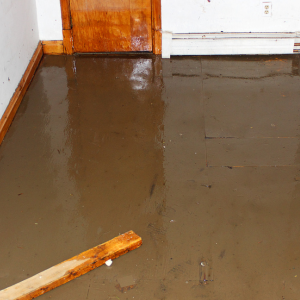
How to Highlight Potential During Open Houses?
Selling a home “as-is” with water damage can be tough. During open houses, it’s important to show the home’s potential. Try using home staging ideas that make the place look nice, even with some damage. Use bright lights and pretty furniture to make rooms inviting. Talk to buyers about any water damage they see and suggest possible fixes, like repair estimates. Getting realtor advice on water damage can help you explain things better. Show buyers what the property can become during open houses.
What Language Should Be Used in Listings?
When writing listings, always be clear about water damage. Each state has its own rules, so check the state disclosure requirements. For example, Minnesota housing laws have specific legal considerations you need to follow. Describe any problems clearly and how they might affect the closing process. A real estate professional who knows the area can help you create an honest and appealing listing to buyers.
Can Offering Seller Financing Help Close the Deal?
Offering seller financing might help with a quick house sale. This differs from traditional selling and can work well for a water-damaged property. By giving flexible payment options, you might attract more buyers. Work with a buyer’s agent during negotiations to address any special concerns they have. Selling your home this way can make agreeing on price and terms easier, helping everyone involved.
his information applies to Minnesota and its cities, including Minneapolis, St. Paul, Minnetonka, Plymouth, and more. For more details, please call us at (612) 400-8070 or visit our website at K&G Investments.
Additional Resources For Minnesota Sellers

